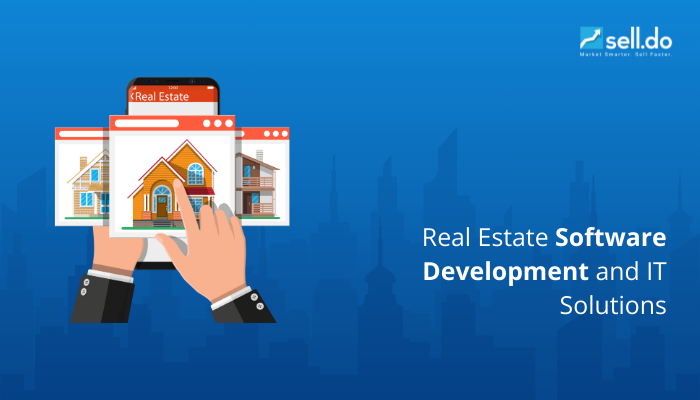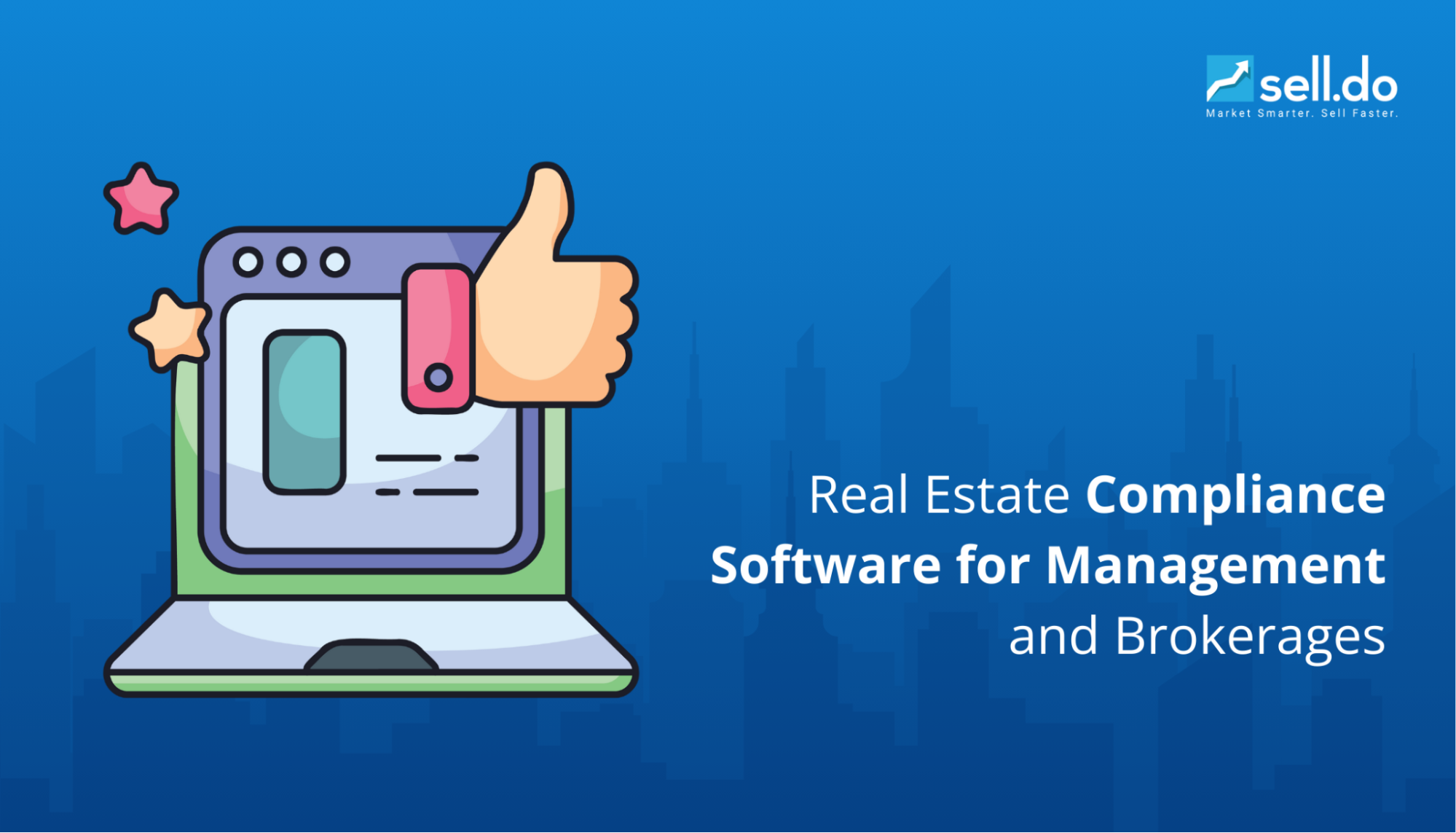If the marketing plan for your real estate business still runs on the same tactics you used three years ago, it’s probably time for an upgrade. Buyer behavior has shifted. Digital platforms have changed. And what worked before might not get you the same results in 2025.
The difference now lies in how well your strategy adapts to current trends—and how intentionally it's built around what buyers and investors pay attention to today.
In this article, we will walk you through practical marketing ideas that work for the current Indian real estate market. No buzzwords. No fluff. Just tried, tested, and trending ways to refresh your marketing plan and get serious results in 2025.
Embracing Digital Methods
A modern marketing plan for a real estate business isn’t complete without digital-first strategies. Buyers today expect convenience, speed, and personalization—and digital tools can deliver exactly that.
Virtual Tours and 3D Walkthroughs
More than half of today’s buyers —52% to be exact—prefer virtual tours over in-person visits. They want to explore properties on their own schedule, without dealing with traffic or time constraints. For developers and brokers, offering 3D walkthroughs is a smart way to attract serious, tech-savvy prospects.
- Show under-construction or upcoming properties in a realistic way
- Reduce physical site visits and filter out casual inquiries
- Boost engagement on property listings and social ads
- Create a premium brand perception with immersive visuals
Recommended: Using Augmented Reality in Transforming Real Estate Experience
Artificial Intelligence (AI) in Marketing
AI is becoming a practical part of any effective marketing plan for real estate businesses. From lead scoring to personalized communication, it helps teams move faster and smarter. In fact, 54% of real estate professionals say AI tools help them identify high-quality leads.
- Use predictive analytics to find out who’s likely to convert.
- Personalize email and ad campaigns based on user behavior.
- Automate follow-ups and save time on repetitive tasks.
- Optimize budgets by targeting ads more accurately.
Content Marketing Strategies
A successful marketing plan for a real estate business doesn’t rely on ads alone. Consistent, valuable content builds trust long before a buyer or investor ever picks up the phone.
Educational Blogging
Blogging isn't just about stuffing keywords. It’s about answering the exact questions your potential buyers, sellers, and investors are already typing into Google.
Think about what your clients ask all the time—“What’s the right time to buy?”, “How do home loans work?” or “What documents do I need to book a flat?” Writing helpful content around these topics positions you as a reliable source, not just another seller.
- Target long-tail keywords tied to specific buyer concerns.
- Break down processes, rules, or regulations in simple language.
- Share insights from local market trends or project-specific updates.
- Improve SEO rankings—53% of website traffic for real estate agents comes from organic search.
A few solid blog posts can continue pulling traffic for months without spending a rupee on ads.
Video Marketing
Video is where attention lives today—and that’s especially true in real estate. A high-quality walkthrough or testimonial can build far more trust than a brochure or banner ad ever could.
Properties with sharp visuals sell 44% of the time at a higher price and 32% faster, so it’s not just about looking good—it directly impacts your bottom line.
- Film walkthroughs to showcase space, lighting, and layout.
- Share real client testimonials to build credibility.
- Post weekly or monthly market insights to keep audiences informed.
- Use platforms like YouTube, Instagram Reels, and WhatsApp to reach more eyes without extra cost.
Adding video to your real estate marketing plan helps you connect visually and emotionally—two things buyers respond to more than ever.
To optimize your videos, you can check out our blog: Top 5 Real Estate Video Editing Software.
Social Media Engagement
Social media isn’t just about posting photos anymore—it’s where buying decisions begin. If your marketing plan for real estate business isn’t using platform-specific content, you’re missing serious traction.
82% of real estate businesses already use social media for marketing. But success lies in how tailored and interactive your content is—not just showing up, but showing up the right way.
Platform-Specific Strategies
Each platform serves a different purpose and audience. A blanket post won’t do much, but strategic content can create serious engagement.
- Facebook (used by 90% of real estate agents) is great for local targeting, live Q&A sessions, and long-form project updates
- Instagram (used by 52%) works well for short videos, reels, and visual storytelling—plus, its ad engagement rate averages 1.22%, higher than most platforms
- LinkedIn (used by 48%) is ideal for developer updates, industry insights, and building a credible presence with investors and NRI audiences
Interactive formats like polls, quizzes, live site tours, and “Ask Me Anything” stories keep your audience involved and boost algorithm visibility.
Also, check our blog: Top Real Estate Social Network Platforms and Their Strategies.
Influencer Collaborations
Local influencers aren’t just for fashion and food—they work wonders for real estate too. Collaborating with micro-influencers, especially those who speak the local language or focus on lifestyle, helps bring authenticity to your property promotions.
- Partner with influencers to tour your properties and share their experience
- Feature them in videos that highlight neighborhood perks, commute times, or amenities
- Use their stories and posts to drive engagement from niche, local audiences
For a marketing plan to stay relevant in 2025, content must connect, and when used intentionally, social media delivers that connection at scale.
Data-Driven Decision Making
Following trends, copying what competitors are doing, or relying on suggestions might work temporarily—but it won’t drive consistent results. A strong marketing plan for real estate business in 2025 needs to be backed by real-time insights, not assumptions.
Market Analysis
When you use data to understand what’s selling, where, and to whom, you stop wasting time and budgets on guesswork. Localized market analytics can show you what type of units are moving, which price brackets are in demand, and how buyer preferences are shifting.
- Use heatmaps and demand forecasts to decide where to focus ad spends
- Monitor time-on-market and lead-to-sale ratios across locations
- Segment your audience by behavior—site visitors, brochure downloads, inquiry types
- Compare interest in ready-to-move-in vs. under-construction properties over time
These insights help you adjust your messaging, timing, and offers to match actual demand—not just market noise.
To help you get started, we have compiled the best tips in our blog, Conducting Real Estate Market Research: Tools and Analysis.
Implement a Real Estate CRM
A CRM isn't just a tool to store contact details—it’s the nerve center of an efficient sales process. When integrated with the marketing plan for your real estate business, it helps streamline conversations, track lead behavior, and close faster.
- Automatically score and segment leads based on engagement levels
- Set smart follow-up reminders to reduce response delays
- Track which channels bring in the highest-converting inquiries
- Get visibility into team performance, pipeline movement, and campaign ROI
Instead of scattered spreadsheets and manual logs, a real estate CRM gives you structured, actionable data. That’s what turns potential interest into signed agreements.
Sustainable and Community-Centric Marketing
Homebuyers are becoming more mindful—not just about where they live, but how their homes impact the environment and their neighborhoods. If your marketing plan for real estate business doesn’t reflect that, you're missing a growing segment of informed buyers.
Highlighting Eco-Friendly Properties
Sustainability is no longer a niche. Properties with green certifications and energy-efficient features have higher perceived value among eco-conscious customers. Promoting these aspects in your listings, videos, and brochures positions you as a forward-thinking developer or broker.
- Highlight solar panels, rainwater harvesting, and low-VOC materials in content
- Promote certifications like IGBC or GRIHA on your website and listings
- Use storytelling to show how sustainable homes reduce energy bills and environmental impact
Community Involvement
Today’s buyers care about more than square footage—they want to feel connected. A strong local presence is a key part of any effective marketing plan for a real estate business, helping build that emotional connection.
- Sponsor or participate in local events like clean-up drives or cultural programs
- Share behind-the-scenes stories of your team supporting local causes
- Use social media to highlight how your projects contribute to the community
This approach does more than just earn goodwill—it helps create long-term trust, which translates into better leads and stronger referrals.
Adapting to Regulatory Changes
Real estate marketing is evolving—and not just because of tech or trends. Regulatory shifts are shaping how you advertise, communicate, and handle customer data. Your marketing plan for your real estate business should account for this, not react to it.
Understanding New Policies
Policies around real estate advertising, digital disclosures, and builder-buyer agreements are tightening. Staying informed isn’t optional—it’s part of doing business responsibly.
- Review marketing claims to ensure they comply with RERA guidelines
- Keep legal teams or consultants in the loop for campaign approvals
- Avoid vague promises and focus on verifiable benefits in listings
Privacy and Data Protection
With rising awareness of data misuse, buyers are increasingly cautious. Demonstrating that you respect and protect their personal data builds credibility and trust.
- Use secure platforms to collect and store customer information
- Clearly communicate your data usage and privacy policies
- Limit access to sensitive data within your organization
In 2025, trust will be a key differentiator. Being proactive about compliance and transparency isn’t just safe—it’s smart marketing.
Now, let’s take a look at how Sell.do can help you leverage these marketing trends and grow your business in 2025.
How Sell.Do Enhances Real Estate Marketing

Real estate marketing isn't just about ads and offers—it’s about efficiency, insight, and speed. That’s where a dedicated CRM like Sell.Do makes all the difference. Designed exclusively for real estate, Sell.Do helps you manage your entire marketing, sales, and post-sales journey from one platform. Whether you're planning a high-volume project launch or nurturing leads over WhatsApp, Sell.Do brings everything under one roof—seamlessly.
With built-in marketing automation, AI-driven insights, inventory controls, and omni-channel communication tools, Sell.Do ensures your team moves faster, smarter, and with complete visibility.
Key Features of Sell.Do CRM

- Marketing Automation: Run, track, and optimize campaigns across channels with powerful automation tools to reach the right buyers at the right time.
- AI-Driven Launch Insights: Predict demand, set smart pricing, and maximize revenue with real-time data and buyer behavior analytics.
- 360° Inventory Management: Give your team and channel partners a live view of inventory, manage EOIs and tokens, and eliminate double bookings.
- Omni-Channel Communication: Stay connected with leads via WhatsApp, email, SMS, and IVR—all integrated into a single communication layer.
- Smart Lead Nurturing: Segment audiences, personalize messages, and stay top-of-mind with timely, targeted follow-ups.
- Integrated Digital Payments: Offer a secure, unified payment experience with auto-generated demand letters, transparent schedules, and instant receipts.
- Channel Partner Hub: Onboard partners, track performance, manage payouts, and resolve conflicts—all in one place.
- Paperless Documentation: Generate booking forms, agreements, and allotment letters instantly, backed by enterprise-grade security.
- Gamification & Offers Engine: Engage buyers with limited-time deals, smart discounts, and interactive tools that drive faster conversions.
- Real-Time ROI Analytics: Track lead sources, campaign results, and sales funnel performance to make smarter marketing decisions.
To know more about how Sell.do can help you, check out our case studies here.
Conclusion
To succeed in real estate today, you need more than just traditional marketing—you need a strategy that combines automation, personalization, and tech-driven insights. Integrating multiple marketing approaches, from community engagement to AI-powered targeting, ensures you reach buyers at every stage of their journey.
Staying updated with emerging trends like omnichannel communication, data-driven decision-making, and immersive experiences isn’t optional anymore—it’s the key to staying ahead of the curve.
With a purpose-built CRM like Sell.Do, you can manage your entire real estate business from a single platform. From smarter project launches to seamless customer interactions, Sell.Do gives you the tools to market faster, sell better, and grow stronger.
Ready to level up your real estate marketing? Get Sell.do today to see the difference it can make!






Leave a comment
Comments (0)
Be the first one to comment.